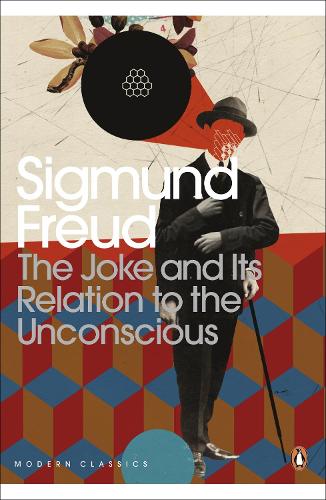
The Joke and Its Relation to the Unconscious
(Paperback)
Publishing Details
The Joke and Its Relation to the Unconscious
By (Author) Sigmund Freud
Introduction by John Carey
Translated by Joyce Crick
Penguin Books Ltd
Penguin Classics
3rd January 2003
28th November 2002
United Kingdom
Classifications
General
Non Fiction
Popular psychology
150.1952
Physical Properties
Paperback
288
Width 130mm, Height 198mm, Spine 15mm
216g
Description
Why do we laugh The answer, argued Freud in this study of humour, is that jokes, like dreams, satisfy our unconscious desires. This text explains how jokes provide immense pleasure by releasing us from our inhibitions and allowing us to express sexual, aggressive, playful or cynical instincts that would otherwise remain hidden. In elaborating this theory, Freud brings together a collection of puns, witticisms, one-liners and anecdotes, many of which throw light on the society of early 20th century Vienna. Jokes, as Freud shows, are a method of giving ourselves away.
Author Bio
Date- 2004-09-22 Sigmund Freud (1856-1939) was born in Moravia; between the ages of four and eighty-two his home was in Vienna- in 1938 Hitler's invasion of Austria forced him to seek asylum in London, where he died in the following year. His career began with several years of brilliant work on the anatomy and physiology of the nervous system. He was almost thirty when, after a period of study under Charcot in Paris, his interests first turned to psychology, and another ten years of clinical work in Vienna (at first in collaboration with Breuer, an older colleague) saw the birth of his creation, psychoanalysis. Freud's life was uneventful, but his ideas have shaped not only many specialist disciplines, but the whole intellectual climate of the twentieth century. Sigmund Freud was born in 1856 in Moravia; between the ages of four and eighty-two his home was in Vienna- in 1938 Hitler's invasion of Austria forced him to seek asylum in London, where he died in the following year. His career began with several years of brilliant work on the anatomy and physiology of the nervous system. He was almost thirty when, after a period of study under Charcot in Paris, his interests first turned to psychology, and another ten years of clinical work in Vienna (at first in collaboration with Breuer, an older colleague) saw the birth of his creation, psychoanalysis. This began simpl
